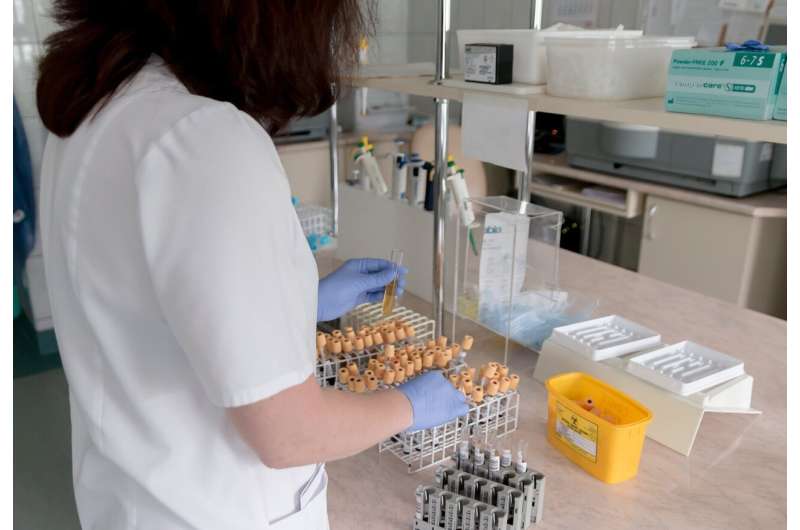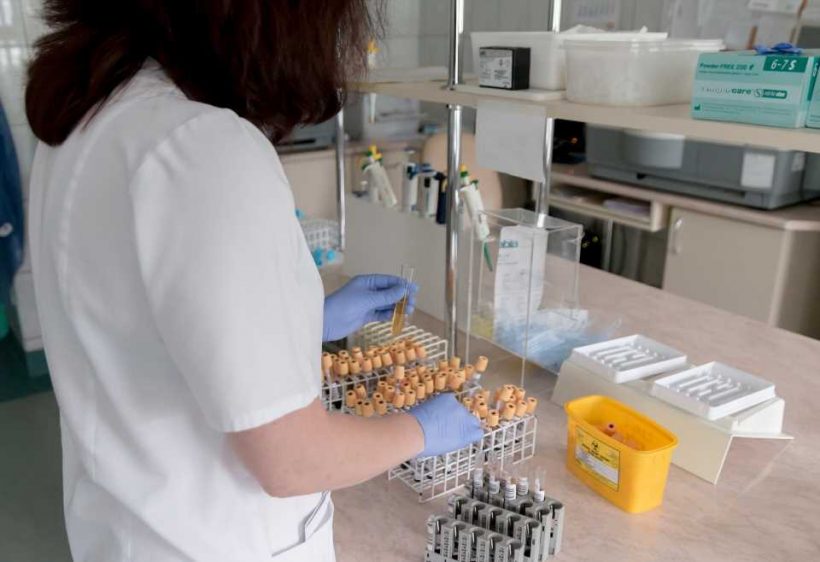
Neil Osheroff, John Coniglio Chair in Biochemistry and professor of biochemistry and medicine, is part of an international research collaboration resulting in what is on track to be the first new antibiotic treatment for uncomplicated urinary tract infections in more than 20 years.
“We now have a direct path connecting the work conducted in our lab to improving human health,” Osheroff said. “A new antibiotic will come on the market and be used by people who have serious infections, in part because of what we did in this lab. To be able to say we are one of the lead research groups working on this is why I am at Vanderbilt and why I am a biochemist.”
The antibiotic, gepotidacin, completed enrollment in phase III trials ahead of schedule based on analysis of its efficacy and safety. GSK, the global biopharma company conducting the trials, plans to submit a New Drug Application for the antibiotic to the U.S. Food and Drug Administration in early 2023, according to a release. Gepotidacin inhibits bacterial DNA replication by a distinct mechanism of action supplied by the Osheroff lab that is foundational to GSK’s forthcoming FDA application.
“Uncomplicated urinary tract infections are the most common outpatient infection, with over half of all women developing a uUTI during their lifetime and more than a quarter of women suffering from recurrent uUTIs,” said Chris Corsico, senior vice president and head of development at GSK. “There has been no new class of oral antibiotics for uUTI for over 20 years. With the number of uUTIs caused by resistant bacteria increasing, new antibiotic treatments are necessary.”
Current antibiotics like Cipro are within a drug type called fluoroquinolone, among the most widely prescribed antibacterial in the world. “The problem with fluoroquinolones is that we’re seeing antibacterial resistance, including specific mutations within enzymes, that makes the drug not interact with infection the way we want,” Osheroff said.
Fluoroquinolones use two enzymes, but only one mutation in the bacterial cell DNA can be enough to cause antibiotic resistance. Gepotidacin has two enzymes that share responsibility in attacking bacterial DNA. This means that bacteria would have to mutate at two spots at exactly the same time to become resistant to this new antibiotic. “Antibacterial resistance is significantly more difficult with this approach,” Osheroff said.
Osheroff, former graduate student and current senior research investigator at Bristol Myers Squibb Elizabeth Gibson and postdoctoral researcher Alexandria Oviatt successfully worked to target two enzymes that attack bacterial cells.
“Our work in the Osheroff lab becomes even more impactful knowing it can help a new oral antibacterial class come to market. During my pharmacy training, it wasn’t uncommon to see patients come back to the pharmacy week after week to fill a new antibacterial prescription to find one to clear up an infection (especially UTIs). Knowing a part of my graduate school work played a small part in combating antimicrobial resistance, a worldwide problem, continues to motivate my work in drug development to help improve patient quality of life,” Gibson said.
The study, “Mechanistic and Structural Basis for the Actions of the Antibacterial Gepotidacin against Staphylococcus aureus Gyrase,” was published in 2019 in the journal ACS Infectious Diseases. Further research was presented at the European Congress of Clinical Microbiology & Infectious Diseases in April 2022.
Journal information:
ACS Infectious Diseases
Source: Read Full Article
